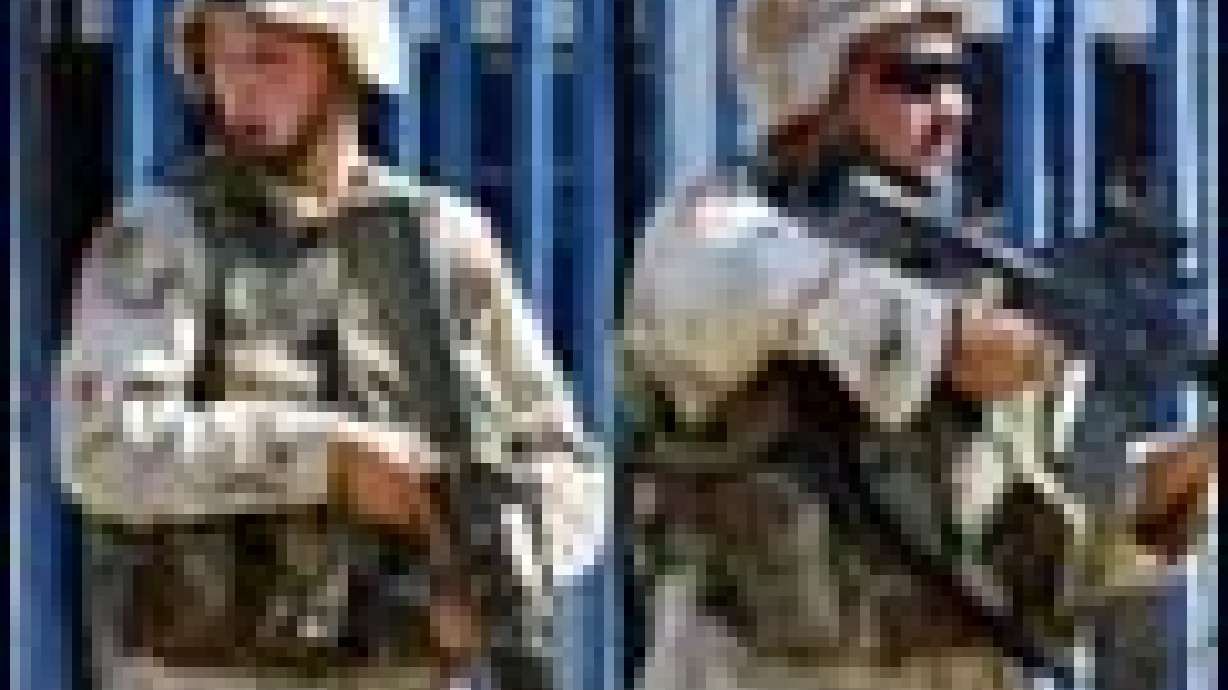Estimated read time: 4-5 minutes
This archived news story is available only for your personal, non-commercial use. Information in the story may be outdated or superseded by additional information. Reading or replaying the story in its archived form does not constitute a republication of the story.
BAGHDAD, Iraq (AP) -- Coalition forces defused a car bomb on a key bridge to oil fields in the north, and Iraqi police killed an attacker after gunmen opened fire Friday at a checkpoint south of Kirkuk.
In Brussels, Belgium, U.N. Secretary-General Kofi Annan said a U.N. team may leave for Iraq in a few days to assess the possibility of early elections as demanded by Shiite Muslim clergy.
U.S. officials fear a vote could lead to greater violence. Instead they want members of a new legislature to be named in regional caucuses. The legislature would in turn choose a new government to take power by July 1, formally ending the U.S.-led occupation.
Annan said Tuesday he would be sending the team, a return to Iraq for the United Nations, which pulled out after its headquarters was attacked by a suicide bomber in August killing 22 people, including his special representative, Sergio Vieira de Mello.
Kirkuk police chief Gen. Turhan Youssef said the car bomb was discovered late Thursday on the al-Hawija bridge on a highway used by coalition forces and oil tankers transporting crude from the northern oil fields in Kirkuk to Iraq's biggest refinery in Beiji.
Al-Hawija bridge is just south of Kirkuk, which is 150 miles north of Baghdad.
Youssef said Iraqi police found the car and informed coalition forces, who defused the bomb. Later, four people were arrested for suspected involvement, he said.
On Friday, six gunmen opened fire on a checkpoint of the Iraqi Civil Defense Forces in Salman Beg, 55 miles south of Kirkuk. One attacker was killed and another injured in retaliatory fire, said Gen. Anwar Amin, the ICDC chief in Kirkuk.
Brig. Gen. Mark Kimmitt, deputy chief of operations for the coalition, said that in the past week, there had been an average of 18 daily engagements against U.S. and coalition forces and just under four against Iraqi security units.
He said a roadside bomb exploded Thursday near a coalition convoy transporting captured Iraqis near the central town of Miqdadiyah, killing one detainee and wounding 11 others. All are in stable condition, he said.
Kimmitt also said U.S. troops in the Baghdad area arrested a man and his four sons Thursday suspected of attacks on coalition troops for $1,500 per attack.
Many recent attacks appear to have been targeting Iraqis seen as collaborating with the U.S.-led occupation. Eleven Iraqis, mostly members of the civil defense corps, were wounded Thursday in a roadside bombing in Baqouba.
Shopkeepers in Ramadi, a pro-Saddam Hussein city west of Baghdad, also reported receiving leaflets on Thursday warning Iraqis to stop working for or with Americans within 10 days or face death.
The undated statement was signed by a previously unknown group, "Anbar Mujahedeen Brigade, the Military Unit." Anbar is the province that includes Ramadi.
The commander of coalition forces in Iraq, Lt. Gen. Ricardo Sanchez, warned that al-Qaida is trying to "gain a foothold" in Iraq, citing the recent arrest of a key operative.
Sanchez said al-Qaida's signature techniques -- car bombs and suicide attacks -- had been on display for some time and Hassan Ghul's arrest added another piece in the puzzle.
Ghul's arrest by U.S.-allied Kurdish forces while trying to enter Iraq from Iran was reported Jan. 24 by officials in Washington. They described him as a senior recruiter for al-Qaida who reported directly to Khalid Shaikh Mohammed, one of the architects of the Sept. 11 terrorist attacks who was captured in March.
"The capture of Ghul is pretty strong proof that al-Qaida is trying to gain a foothold here to continue (its) murderous campaigns," Sanchez said.
The warning adds to the complexity of the anti-U.S. insurgency being waged by in Iraq, mostly in the central provinces. U.S. military officials have described the guerrillas as remnants of Saddam's former regime and members of his Baath Party.
Also Thursday, Secretary of State Colin Powell said Ghul's arrest backed his claims last year to the U.N. Security Council urging action against Iraq.
"It's one individual; I don't know that it is definitive in and of itself," Powell said. "But I think his apprehension substantiates the kind of statements that we made ... that here was this potential connection between al-Qaida and Saddam Hussein."
(Copyright 2004 by The Associated Press. All Rights Reserved.)









